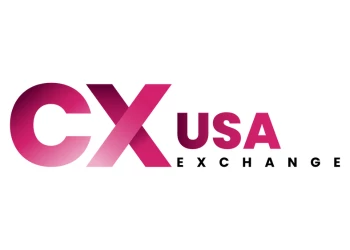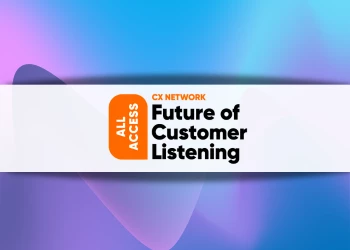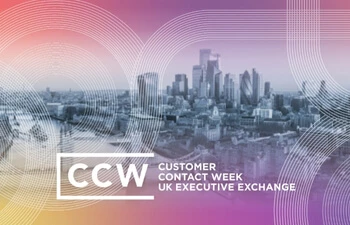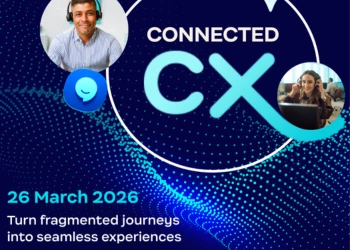US government moves to enhance customer experience and build trust
The US government is bringing in new regulations to simplify subscription cancellations and improve customer service, as part of broader efforts to restore public trust
Add bookmark
A coalition of US federal agencies is spearheading efforts to streamline customer service across multiple departments. The initiative, called "Time Is Money," includes new regulations and promises measures targeting industries ranging from healthcare and fitness memberships to media subscriptions.
One of the initiatives’ first actions began on August 12, when the Federal Communications Commission (FCC) launched an inquiry into whether communications companies should be required to make cancelling a subscription or service as easy as signing up for one.
Meanwhile heads of the Departments of Labor and Health and Human Services are urging health insurance companies to simplify their processes. According to a White House summary, they plan to identify opportunities to improve consumer interactions with the healthcare system in the coming months. In a letter to health insurance CEOs, they cited complicated processes to get approval or reimbursement for healthcare, like the requirement to print and mail paper claim forms instead of submitting these electronically.

Don't miss any news, updates or insider tips from CX Network by getting them delivered to your inbox. Sign up to our newsletter and join our community of experts.
Enhancing transparency in customer experience
The government has already taken several steps to enhance consumer experiences across the private sector. In June, the Justice Department, acting on a referral from the Federal Trade Commission (FTC), filed a lawsuit against software company Adobe and two of its executives for allegedly steering consumers toward the firm’s “annual paid monthly” subscription without adequately disclosing that canceling within the first year could incur significant fees. Adobe has contested the lawsuit's claims, arguing that early termination fees have minimal impact on their revenue, but are crucial for offering customers flexible plans.
Last October, the FTC proposed a rule to ban hidden and bogus fees that often obscure the true cost of concert tickets, hotel rooms and utility bills. Similarly, in April, the Department of Transportation finalized rules requiring airlines to automatically issue cash refunds for delayed flights and to improve transparency regarding baggage and reservation cancellation fees.
Critics warn against regulation
The Time is Money initiative isn’t popular with everyone, however. Neil Bradley, executive vice president, chief policy officer, and head of strategic advocacy at the US Chamber of Commerce, is critical of the project, saying that “while we agree on the problem of all-too-high costs for American families, the regulatory burden unleashed by the so-called Time is Money initiative will cost the American people more time and money.
"Businesses succeed by being responsive to customers and have a far better track record of customer service, streamlined paperwork, and prompt response times than the federal government,” he said in a statement. “Imposing heavy-handed regulations that micromanage business practices and pricing is the wrong approach, inevitably raising costs for consumers."
Building trust in public services
In addition to its work on the customer experience with private sector organizations, the US has also been working on its citizen experience, that is the quality of services and experiences provided by public sector organizations.
Public trust in the US government has been at its lowest in the last decade according to Pew Research Center, with only 22 percent of people saying they trust the government to "do what is right".
Customer experience has been a primary focus of the US government since the Covid-19 pandemic. In 2021, the White House published its CX Executive Order on transforming federal CX, outlining a series of actions aimed at building trust in government services including reducing paperwork and modernizing services to make it easier to access services and benefits.
Reflecting on the global trend for evolving customer needs, Sabina Onwuka, head of customer services for Barking and Dagenham Council in London, says that “customer expectations have risen since the Covid-19 pandemic, and people now expect more; they are more aware of their rights, they want alignment with their values and beliefs, and many have faced their own economic changes."
Onwuka also emphasizes that to meet these changes, employees handling queries from the public need to be trained to have “more informed conversations. We also need to revisit how we measure whether our advisors are doing a good job.” For example, rather than measuring the average handle time of a call, quality should be considered the primary measure.
Expanding communication channels
This year’s President’s Budget specifically mentioned expanding digital, phone, and in-person options for paying taxes, as well as improving data analytics to help meet demand.
When CX Network carried out its Global State of CX research in 2023, 45 percent of survey respondents said they had the same expectations for public sector organizations in terms of seamless, efficient and friction-free experiences as they did for private businesses. Claire Agutter, service management trainer and consultant, says that “customer centricity should be for all, whether that's the private or public sector; the importance of delivering exceptional customer experiences extends beyond the private sector.”
It is therefore unsurprising that government agencies are focusing efforts on improving interactions with the public. Expanding and enhancing available touchpoints with different government departments are quick win — providing a variety of channels of communication including in-person, telephone, email and chatbots to ensure services are as inclusive and accessible as possible, preventing the formation of a digital divide.
MaryAnn Monroe, vice president for total experience solutions and services at Maximus, a provider of tech solutions to government, explains: “The evolving ways citizens interact means agencies must expand service delivery strategies beyond traditional channels, as conventional methods and contact centers alone cannot deliver the optimized experience that citizens deserve.
“Putting the citizen first, and improving accessibility,” she adds, “means building digital channels across devices to promptly, and thoroughly address citizen needs.”
Special Report: The Global State of CX

Tenth annual flagship report. AI has transformed CX, raising expectations with investment in AI for CX automation, machine learning, and conversational AI now a top priority. Download the Global State of CX to learn how the industry is preparing for the new AI first future.
Download Now





















